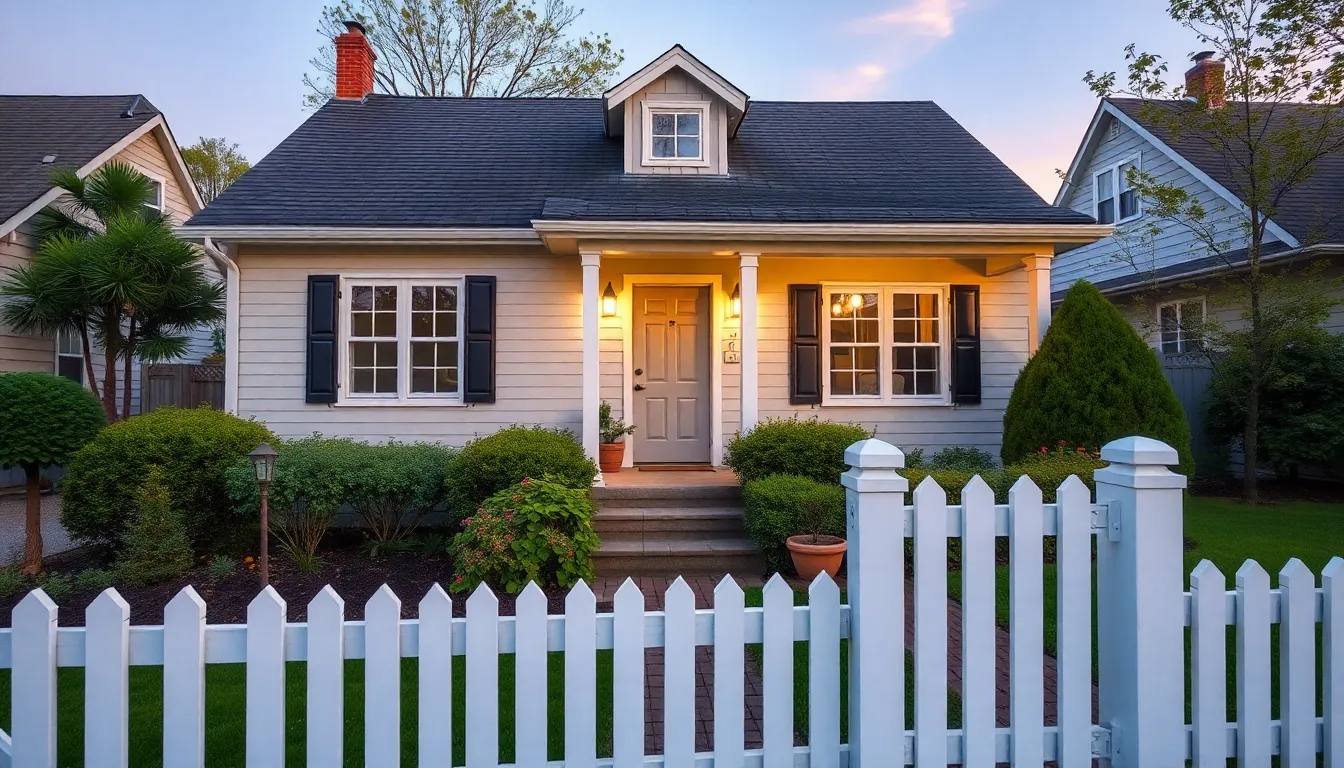Navigating the world of home insurance can feel overwhelming, especially with the variety of plan options available. Homeowners often find themselves questioning what coverage they truly need to protect their most valuable asset. Understanding the different types of policies and their features is crucial for making informed decisions.
From basic coverage that protects against common risks to comprehensive plans that offer extensive protection, each option has its unique benefits. Exploring these choices helps homeowners tailor their insurance to fit their specific needs and budgets. With the right knowledge, they can secure peace of mind knowing their home is well-protected against unforeseen events.
Table of Contents
ToggleUnderstanding Home Insurance Plan Options
Home insurance plans come in various forms, each tailored to meet specific needs. Homeowners should review these options carefully to determine suitable coverage.
Types of Home Insurance Plans
- Basic Plans
Basic home insurance plans, also known as HO-1 policies, provide essential coverage. They typically protect against specific disasters, such as fire, theft, and vandalism. Homeowners often select this option for minimal coverage at lower premiums.
- Broad Plans
Broad plans, or HO-2 policies, offer expanded protection. They cover additional risks like falling trees or weight of snow. Homeowners choosing broad plans gain a more comprehensive safety net while managing costs.
- Specialized Plans
Specialized plans, often referred to as HO-3 policies, provide extensive coverage for a wide range of scenarios. They cover personal property and liability, with exceptions for certain risks like floods or earthquakes. This option usually appeals to homeowners seeking more comprehensive protection.
- Comprehensive Plans
Comprehensive home insurance or HO-5 policies provide the highest level of coverage. They cover most risks without standard exclusions. Homeowners opting for comprehensive plans benefit from extensive protection, ensuring their investments remain secure.
- Condo Insurance
Condo-specific insurance, typically an HO-6 policy, addresses unique needs in shared living spaces. It covers personal property and liability within the unit, along with improvements made to the residence. This plan helps condo owners protect both their belongings and the common areas.
- Renters Insurance
Renters insurance covers personal belongings for individuals renting a home or apartment. It offers protection against theft, fire, and other risks, along with liability coverage. This policy helps renters safeguard their assets without insuring the entire structure.
Key Considerations for Selecting a Plan
Consider these factors when evaluating home insurance plans:
- Coverage Needs: Assess personal belongings’ value and potential risks.
- Budget: Determine how much to allocate for premiums.
- Property Location: Identify specific risks associated with the area, such as flooding or crime rates.
- Deductibles: Choose an appropriate deductible to balance premium costs and out-of-pocket expenses.
Understanding these plan options facilitates informed decisions for homeowners. Each type addresses unique requirements and scenarios, allowing for tailored coverage.
Types of Home Insurance Plans

Home insurance plans vary in coverage and protection levels. Understanding these types enables homeowners to select the best option for their needs.
Basic Home Insurance
Basic home insurance, known as HO-1, offers essential protection against specific disasters. It typically covers fire, lightning, windstorm, hail, explosion, vandalism, and theft. Limited to named perils, HO-1 policies exclude coverage for multiple risks, such as floods and earthquakes, necessitating additional coverage options for comprehensive protection.
Comprehensive Home Insurance
Comprehensive home insurance, designated as HO-5, provides extensive coverage with minimal exclusions. This plan protects against various risks, including theft, fire, vandalism, and liability. HO-5 policies typically cover personal belongings on an all-risk basis, ensuring homeowners receive compensation for a broad array of potential losses. Homeowners benefit from higher coverage limits and improved security under this robust plan.
Specialized Home Insurance
Specialized home insurance plans address specific living situations. HO-3 serves as the most common homeowners policy, covering a wide range of risks while offering liability protection. Condo insurance (HO-6) caters to individuals residing in condominiums, covering personal property and certain building elements. Renters insurance guards personal belongings for tenants, ensuring peace of mind against unexpected incidents and losses. Homeowners should consider their unique situations when selecting specialized policies.
Factors to Consider When Choosing a Plan
Homeowners face several important factors when choosing a home insurance plan to ensure adequate protection for their properties.
Coverage Limits
Coverage limits define the maximum amount an insurer pays for a covered loss. Homeowners must evaluate the value of their property and its contents to choose appropriate limits. Total replacement cost coverage replaces damaged property without deducting depreciation, while actual cash value coverage factors in depreciation. For optimal protection, a homeowner’s dwelling limit should align with the current market value and cost to rebuild.
Deductibles
The deductible is the amount a homeowner pays out-of-pocket before the insurance coverage applies. Higher deductibles typically result in lower premium costs, but significant financial burdens can arise during a claim. Homeowners must assess their financial capability to pay deductibles while evaluating the potential savings on policy premiums. Selecting a deductible that balances affordability and manageable risk is crucial for effective coverage.
Premium Costs
Premium costs represent the amount homeowners pay for their insurance policy. Various factors influence these costs, including property location, construction type, coverage limits, and claims history. Homeowners should compare quotes from multiple insurers to identify competitive rates that match their desired coverage options. Exploring discounts for bundling policies, improving home security, or maintaining claim-free records can also help lower premiums.
Benefits of Having Home Insurance
Home insurance offers significant advantages for homeowners. It provides financial security against unexpected events that could damage property or result in loss.
Protection Against Property Damage
Home insurance safeguards against various perils, such as fire, theft, and vandalism. Coverage can extend to structural damage from extreme weather, ensuring that homeowners receive compensation for repairs or replacements.
Liability Coverage
Home insurance includes liability protection, which covers legal costs if someone is injured on the property. Without this coverage, homeowners might face substantial expenses associated with lawsuits or medical bills.
Additional Living Expenses
Home insurance typically covers additional living expenses incurred during repairs. If a home becomes uninhabitable due to a covered event, the policy may reimburse costs for temporary housing and other expenses.
Peace of Mind
Homeowners benefit from peace of mind knowing their investment is protected. Insurance provides reassurance during challenging times, allowing individuals to focus on recovery rather than financial burdens.
Mortgage Requirement
Most mortgage lenders require homeowners to obtain insurance before approving a mortgage. Coverage ensures that the investment is adequately protected, meeting lender stipulations and avoiding potential default situations.
Customizable Coverage Options
Home insurance plans offer customizable options to suit individual needs, ensuring appropriate levels of coverage. Homeowners can adjust policies based on property type, location, and personal requirements, enhancing their protection.
Discounts for Bundling
Many insurance providers offer discounts for bundling home insurance with other policies, like auto insurance. These savings can reduce overall insurance costs while maintaining comprehensive coverage.
By investing in home insurance, homeowners secure vital financial protection, support, and peace of mind against the unpredictability of life.
Choosing the right home insurance plan is essential for safeguarding one’s property and financial well-being. By understanding the various options available and assessing individual needs, homeowners can find coverage that fits their specific situations. Whether opting for a basic plan or a more comprehensive policy, it’s crucial to consider factors like coverage limits, deductibles, and premium costs.
Exploring potential discounts and comparing quotes can lead to significant savings without compromising on protection. Ultimately, a well-chosen home insurance policy not only provides peace of mind but also ensures that homeowners are prepared for life’s unexpected challenges.







